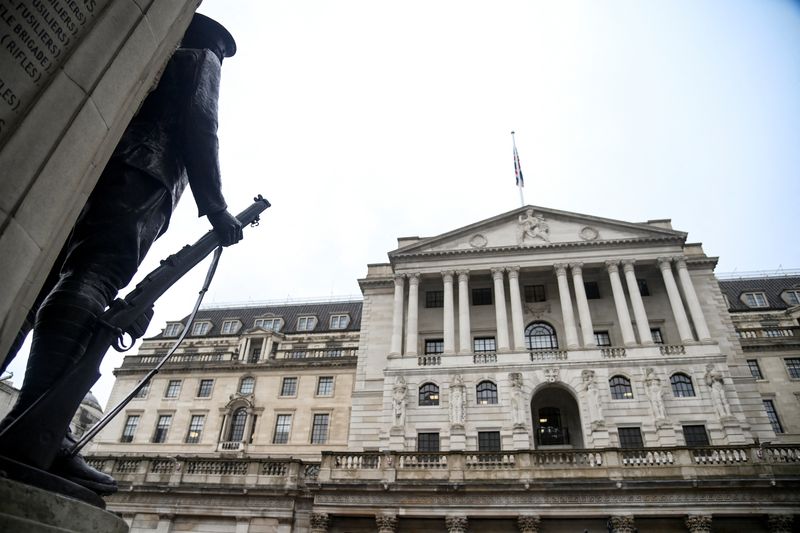LONDON (Reuters) -The Bank of England is trying to bring down inflation without causing too much pain to Britain's economy, Chief Economist Huw Pill said on Friday, a day after the BoE hiked borrowing costs sharply and warned of a long recession.
"What we are seeking to do, we're always seeking to do, is to find that balance that gets us back to our 2% inflation target without generating unnecessary and costly problems in the real side of the economy," Pill told CNBC television.
"Creating that balance, signalling that balance, that was really our key message yesterday."
On Thursday, the BoE raised its benchmark rate by three quarters of a percentage point to 3.0% as it sought to combat risks from an inflation rate running above 10%.
It also warned investors that the risk of Britain's longest recession in at least a century means borrowing costs are likely to rise less than they expect.
Pill repeated the BoE's message that rates were likely to go up but bets by investors on how high Bank Rate is likely to go during the recent period of political and market turmoil in Britain went "a little bit too far in one direction."
Britain's bond market suffered weeks of heavy selling triggered by the tax cut plans of former prime minister Liz Truss that she had to abruptly reverse, and which led to Truss being replaced in Downing Street by Rishi Sunak last week.
After being forced into emergency action to support the gilt market, Pill said the BoE was now trying to get back to steering the economy out of its cost-of-living crisis caused by high inflation that is running at more than 10%.
"I think we've had a clearly quite disturbed period in the UK markets, in the UK political economy, in the UK economy over the last few months," he told CNBC. "(We're) trying to re-anchor our own thinking in the more fundamental drivers ... I think we're trying to re-anchor our communication."
"I think we're hoping, and we're intending, that gives an opportunity for markets to re-anchor their thinking and ultimately their pricing."

The task of getting inflation under control was likely to be a painful one, Pill said.
"(The) slowdown in the economy is what we anticipate is required to contain domestic inflationary pressures to achieve our targets," he added.